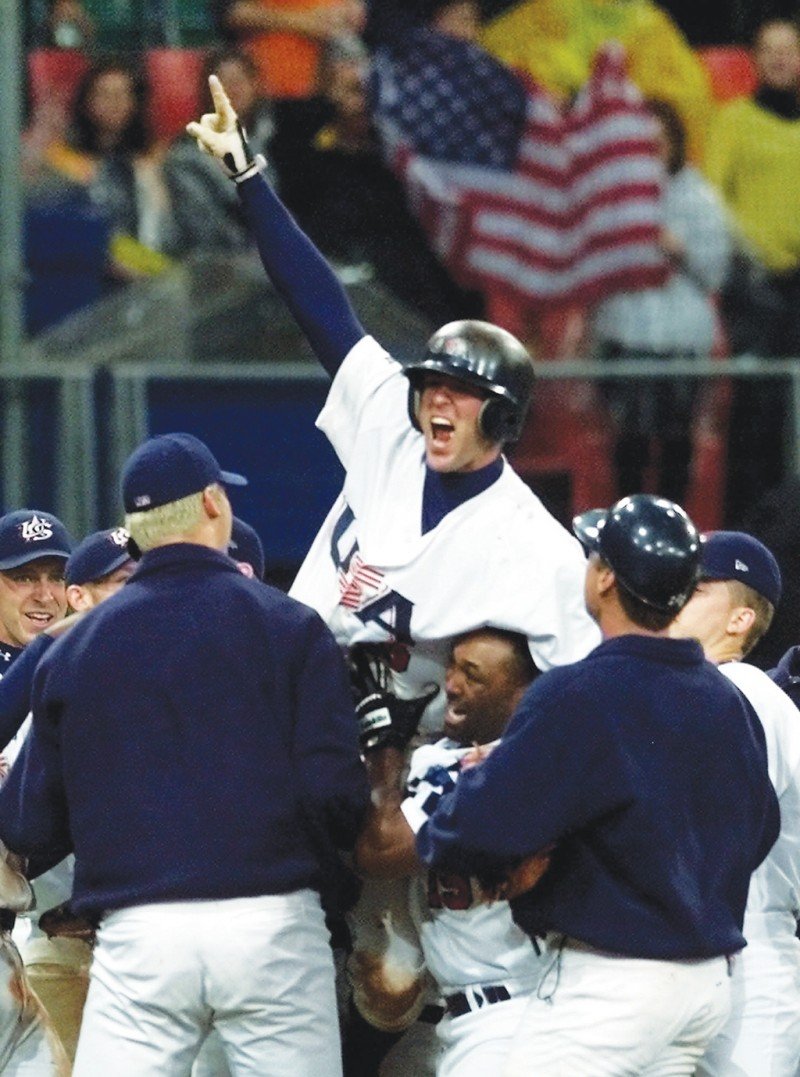Doug Mientkiewicz's Champion Journey: From Olympic Gold to World Series Victory
Doug Mienkiewicz, Olympic Champion.
Doug Mientkiewicz's baseball story is a masterclass in championship mentality, resilience, and seizing the moment when it matters most. His journey from being sent down to Triple-A after struggling in the majors to becoming an Olympic gold medalist and World Series champion illustrates what it truly means to be a champion on baseball's biggest stages.
After being sent down from the Minnesota Twins in 2000 despite having a strong spring training, Mientkiewicz found himself in Triple-A feeling like his confidence was shattered. What seemed like a devastating career setback turned into one of the most pivotal moments in his life when he was selected to represent Team USA in the 2000 Olympics in Sydney. Being part of this Olympic team was especially meaningful because his mother had always dreamed of seeing him play in the Olympics after he narrowly missed making the 1996 team.
The 2000 Olympic baseball tournament marked the first time professional players could participate, creating a unique opportunity to field a competitive team against perennial powerhouse Cuba. The team selection process focused not just on raw talent, but on assembling players with the right mindset and international experience. As Mientkiewicz described it, they wanted players with "snarl" - competitors who wouldn't be intimidated and could handle the pressure of international competition.
The dramatic climax of the Olympic tournament featured Mientkiewicz hitting perhaps the most important home run of his life. In a rain-delayed, extra-inning semifinal game against Korea, after enduring wet uniforms, cold weather, and multiple strategic changes, Mientkiewicz connected on a change-up from a sidearm pitcher and launched a game-winning home run. The emotional celebration that followed - being carried off the field and embraced by teammates - highlighted what the moment meant not just for him but for American baseball on the international stage.
One of the most insightful aspects of Mientkiewicz's story is his description of championship preparation. "Champions get better in the dark," he explains, referring to the unseen work that elite players put in when nobody's watching. His father instilled this mentality by ending every batting practice session with a scenario: "Bottom of the ninth, your team's down a run, runners on second and third. What are you going to do?" This mental preparation meant that when Mientkiewicz faced real high-pressure situations, he had already visualized success thousands of times.
His perspective on the 2004 Red Sox World Series run offers fascinating behind-the-scenes insights into one of baseball's most legendary comebacks. After being down 3-0 to the Yankees in the ALCS, the team's ability to focus on "winning today" rather than the daunting task of winning four straight games demonstrates the power of breaking insurmountable challenges into manageable parts. The famous Dave Roberts stolen base that sparked the comeback illustrates how championships often hinge on milliseconds and inches - Roberts being safe by the narrowest of margins changed baseball history forever.
Mientkiewicz's coaching philosophy reveals his deep understanding of what makes teams successful. He emphasizes creating chaos in practice so players can function when the world around them feels like it's "burning down" in high-pressure game situations. His approach centers on making players mentally tougher, controlling what's controllable (breathing, demeanor, process), and helping each player understand what makes them tick as individuals before addressing baseball skills.

